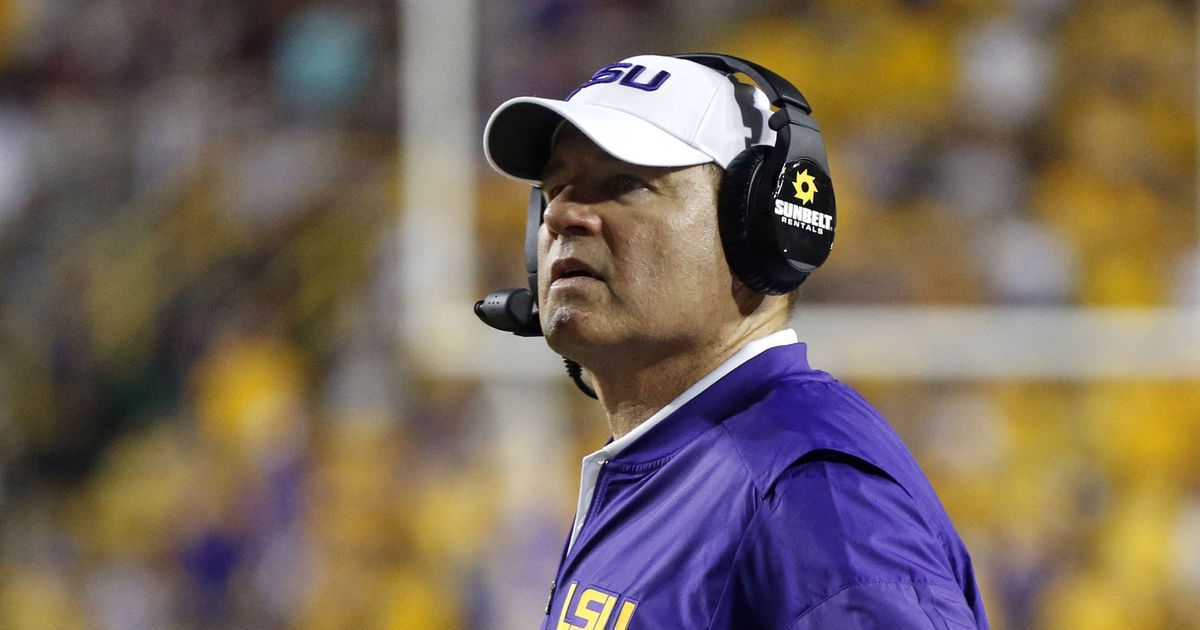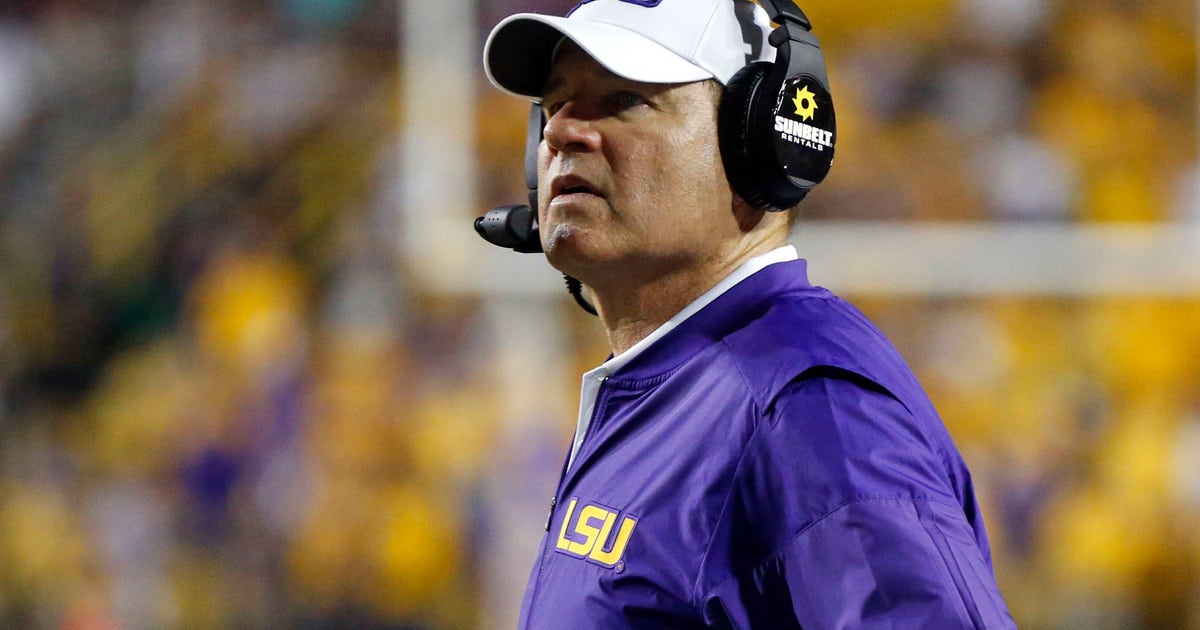Report: Former LSU AD wanted Miles fired amid sexual complaints


LSU‘s former athletic director recommended in 2013 that Les Miles be fired as Tigers football coach because of his behavior with female student workers.
Then-athletic director Joe Alleva’s recommendation to former LSU President F. King Alexander is detailed in a newly released report into how the university handled sexual misconduct complaints.
The exhaustive report, released Friday by the Husch Blackwell law firm, offers a scathing view of the resources and attention LSU has dedicated to such complaints and has resulted in the suspensions of two senior officials in the athletic department.
Executive deputy athletics director Verge Ausberry has been suspended 30 days and senior associate athletic director Miriam Segar 21 days. Both are suspended without pay and ordered to undergo sexual violence training.
Miles, who now coaches at Kansas, was investigated after two female student workers accused him of inappropriate behavior.
While that investigation by the Taylor Porter law firm found Miles showed poor judgment, it did not find violations of the law or that he had a sexual relationship with any students. Taylor Porter also concluded it could not confirm one student’s allegation that Miles kissed her while they were in the coach’s car with no one else present.
Alleva recommended to then-LSU President King Alexander that Miles be fired with cause. In an email dated June 2013, Alleva wrote Miles was guilty of “insubordination, inappropriate behavior, putting the university, athletic dept (cq) and football program at great risk.”
Miles, who was hired by LSU in 2005 and won a national title in 2007, remained the Tigers’ coach until he was fired during the 2016 season when the Tigers were 2-2.
Miles has strenuously denied allegations he made sexual advances toward students and has said he merely sought to serve as a mentor for people who expressed to him an interest in pursuing careers in sports.
Kansas has issued a statement saying it is reviewing the recent revelations before deciding upon any action regarding Miles’ status as coach.
Meanwhile, LSU has not fired anyone whose conduct was criticized in the Husch Backwell report.
Interim President Tom Galligan said during a meeting Friday in Baton Rouge, Louisiana, that he sought to be fair in issuing discipline. Galligan stressed that the independent report released Friday concluded that failures in responding to sexual misconduct complaints at LSU stemmed largely from ambiguous policies and a lack of resources for “overburdened” employees tasked with handling such complaints.
“People will be unhappy either way,” Galligan said of how the university chooses to discipline individuals cited for making mistakes in the report by the Husch Blackwell law firm.
Galligan then read an excerpt from the report stating that such employees “were not served well by the leadership of the university.”
Attorney Scott Schneider, who led the Husch Blackwell probe, said that while LSU does not have a monopoly on mishandling sexual misconduct cases, the university “has been very slow to develop policies and infrastructure and personnel that was really required” to ensure compliance with federal Title IX laws that deal broadly with gender equity in education, and which also apply to instances of sexual violence or harassment at educational institutions.
Schneider found that LSU leadership “responded in a lackluster fashion” when officials who handled Title IX compliance requested more resources.
“The university’s Title IX office was never staffed appropriately,” he said. “We’re not the first people to note that and flag this issue to the leadership of the university. It has been repeatedly addressed to the leadership of the university and seemingly nothing has been done to remedy it up until this point.”
The report said LSU’s failure to properly handle sexual assault complaints was a campus-wide issue, and that allegations against athletes were treated no differently than those against non-athletes. However, Schneider noted that star athletes tend to have inherent leverage over their victims at schools where athletics are highly valued.
Victims are “understandably reluctant to participate in the Title IX process because they fear community backlash,” Schneider said.
Galligan said he intends to act on all 18 recommendations in the report on how to strengthen how the university handles sexual misconduct complaints campus-wide. Those recommendations called for everything from clarification of policies and protocols to increases in staffing and departmental reorganizations.
LSU hired Husch Blackwell and agreed to pay up to $100,000 for an independent audit of hits handling of sexual misconduct complaints in November, after reporting by USA Today detailed instances of how LSU handled sexual assault cases implicating former football players Derrius Guice and Drake Davis.
While Davis was suspended and ultimately forced the leave the football program, that was not until after his then-girlfriend was attacked repeatedly. Guice left LSU in good standing and was drafted into the NFL. Subsequently, he was cut by the Washington Football Team in connection with more recent allegations that he choked his girlfriend.
Guice played for current football coach Ed Orgeron, but Schneider cautioned against allowing coaches to be involved in sexual misconduct complaints. His recommendation is that only Title IX officials with expertise in such matters should handle such investigations and resulting discipline, while coaches should focus on their area of expertise.
“You don’t want the coaches involved,” Schneider said. “What we want is athletics to be out of it entirely and allow the Title IX office to do its investigation.”





